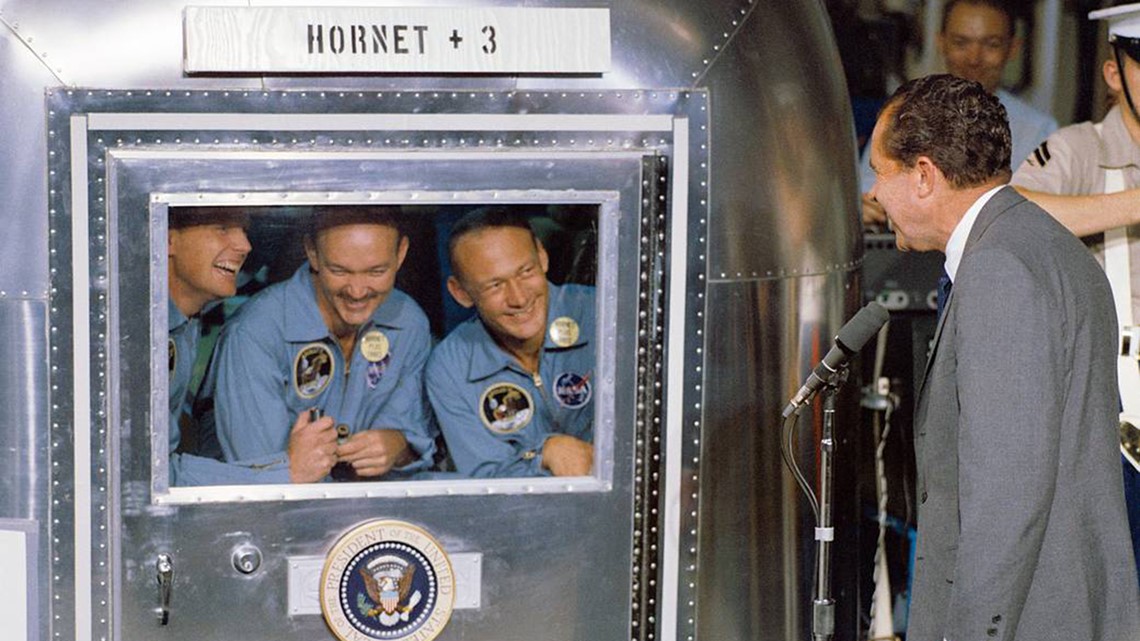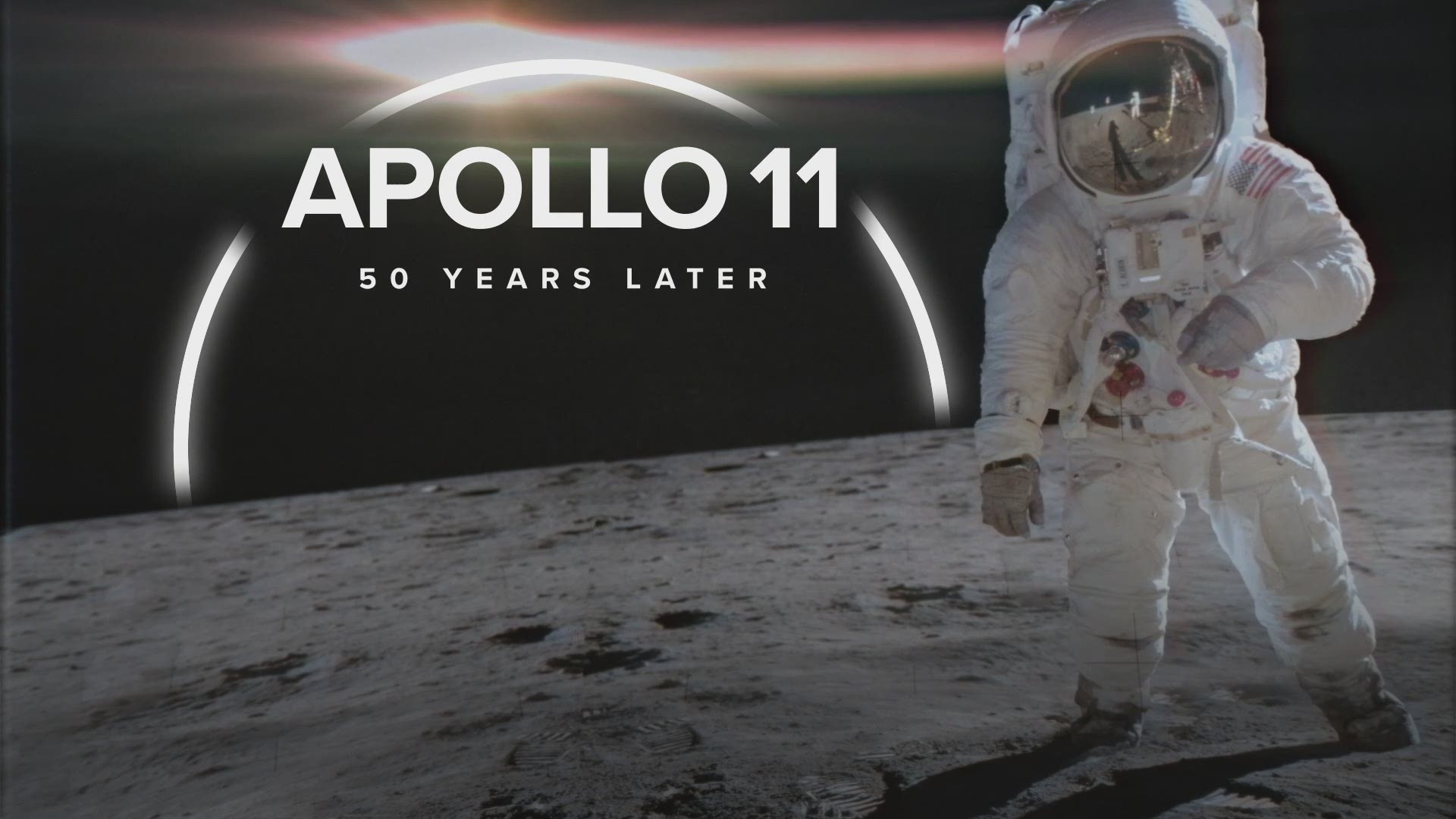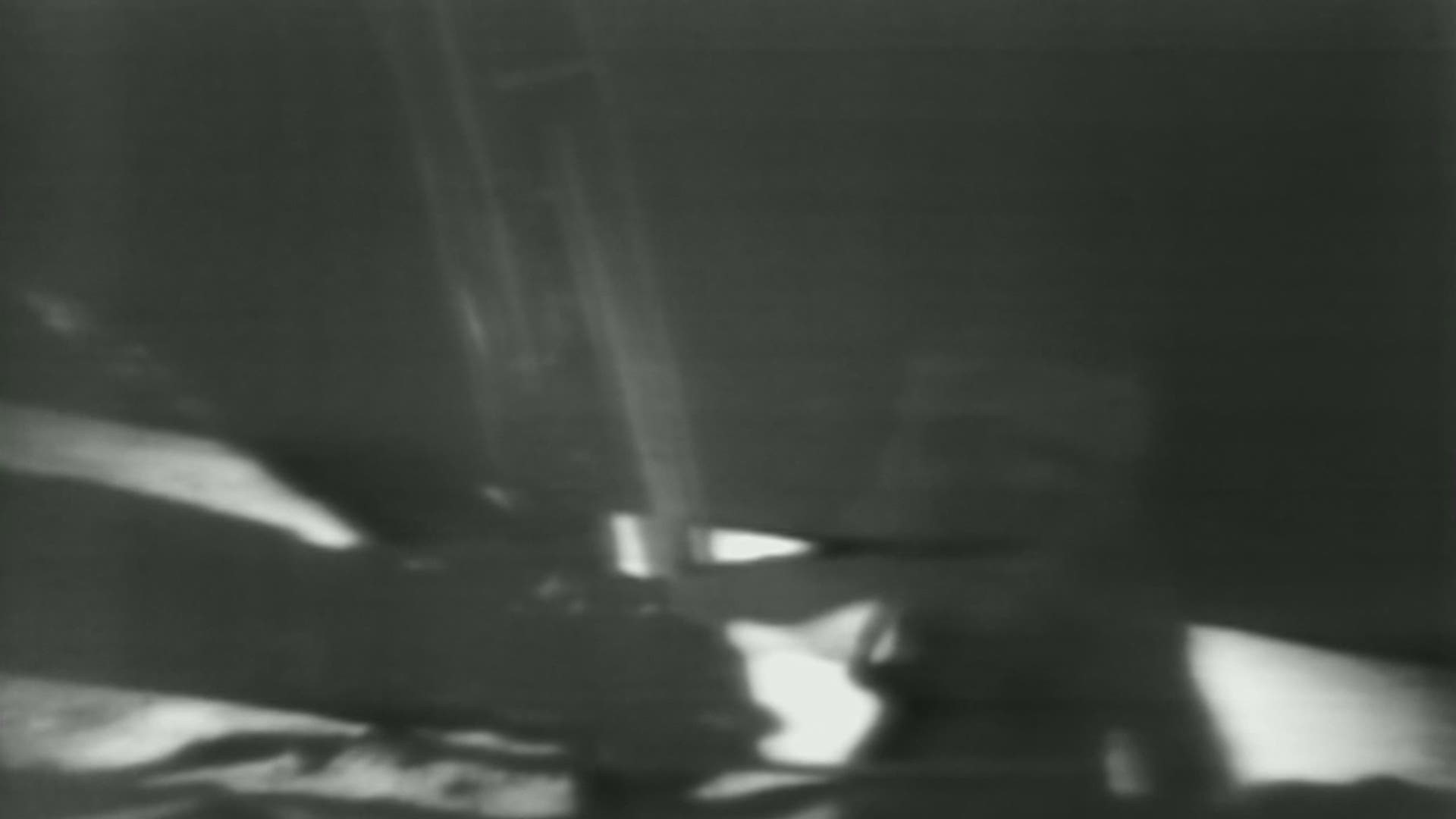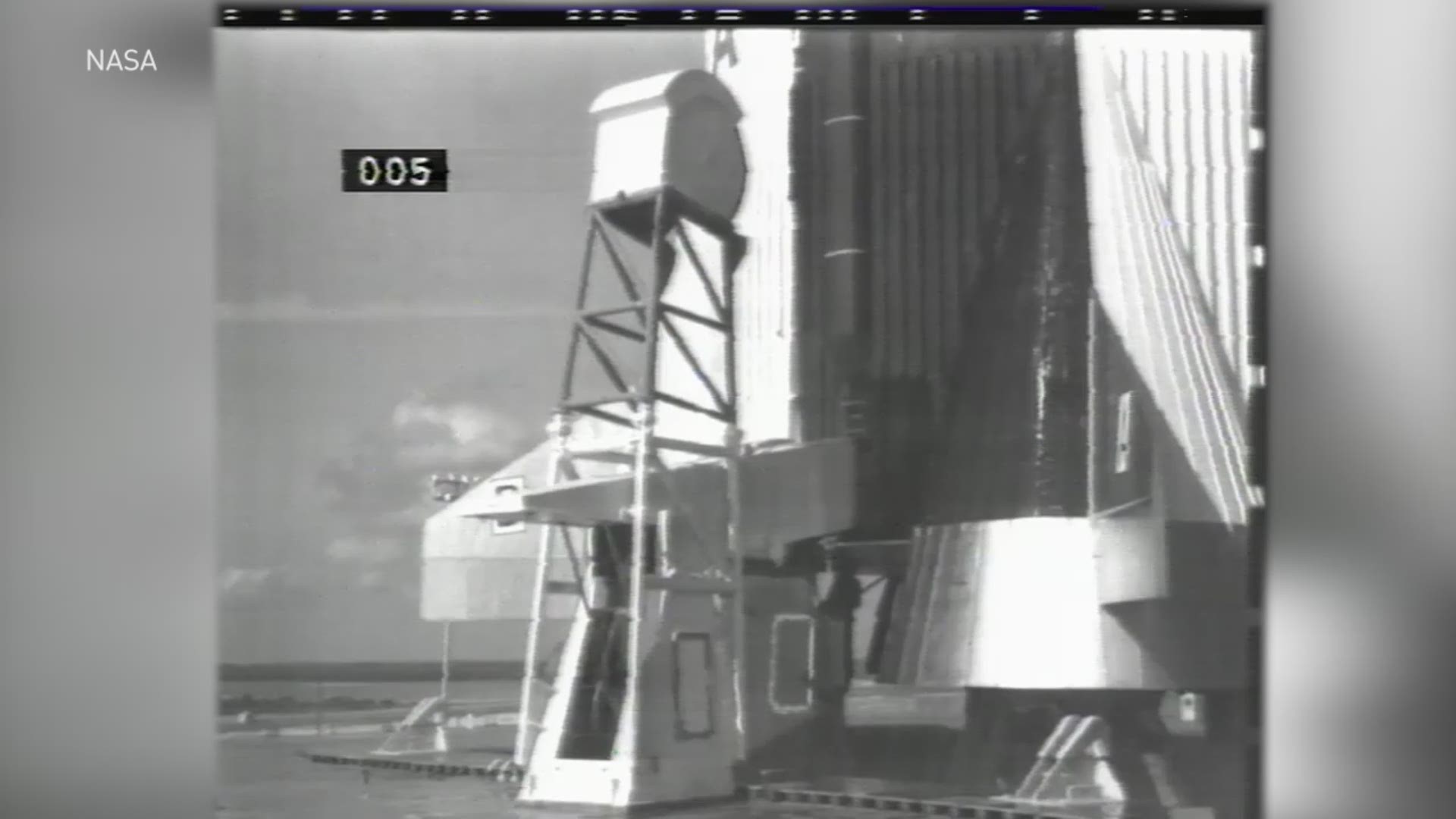WASHINGTON — The United States’ feat of landing a man on the moon may have ended the Space Race, achieved a goal set by President John F. Kennedy and accomplished a “giant leap for mankind,” but it all took meticulous planning, even the morbid kind.
On July 18, 1969, William Safire, Nixon's speechwriter at the time, wrote and sent a speech to the president's chief of staff that could be used "in [the] event of moon disaster," if issues during Apollo 11 left astronauts Neil Armstrong and Edwin “Buzz” Aldrin stranded.
“Fate has ordained that the men who went to the moon to explore in peace will stay on the moon to rest in peace. These brave men, Neil Armstrong and Edwin Aldrin, know that there is no hope for their recovery. But they also know that there is hope for mankind in their sacrifice,” President Richard Nixon would have told the country had the first two men to walk on the moon never returned from its surface.
At the time, the most dangerous part of Apollo 11’s mission was getting the lunar module back into orbit to join the command ship, piloted by Michael Collins, Safire told NBC’s “Meet The Press” on the moon landing’s 30th anniversary.
Safire explained that he wrote the speech after an astronaut acting as White House liaison told him to consider an “alternative option” for the president if there was a mishap during Apollo 11.
“I didn’t get it until he added… like what to do for the widows,’” Safire said.
If the astronauts could not get back from the surface, they would have to be left on the moon to die, likely by asphyxiation, starvation or possibly suicide, he explained during the interview.
Safire said for 17 years afterward, everyone operated with the assumption that nothing could go wrong in the space program, until Challenger exploded moments after liftoff and killed all seven crew members, including a civilian school teacher.
Columbia, another space shuttle, broke apart during atmospheric re-entry in 2003, also killing all seven of its crew members. Even before the lunar landing, all three Apollo 1 crew members were killed in a cabin fire during a launch rehearsal.
“We realized what enormous risks that were being run by these astronauts, they laid their lives on the line every time,” Safire said in the 1999 interview.
Safire’s draft speech went unnoticed for almost 30 years until it was discovered by chance during the late 1990s by historian James Mann. He found it rummaging through Nixon administration archives while researching a book on America and China. The plan came to light when he wrote a piece in the Los Angeles Times titled "The Story of a Tragedy That Was Not to Be."
A week later, Safire penned his own essay for The New York Times confirming Mann's reporting.
As part of the tragic contingency plan, he had recommended the president should telephone each of the "widows to-be" before speaking to the nation, and after NASA cut off contact with the astronauts, ''a clergyman should adopt the same procedure as a burial at sea, commending their souls to 'the deepest of the deep."
The contingent address provides another humbling reality about the sacrifice those involved make for space exploration. Mann, Safire and many others are grateful there were no “widows-to-be” or “burials at sea” after Apollo 11, and that any other words from the speech weren’t given.
"IN EVENT OF MOON DISASTER:
Fate has ordained that the men who went to the moon to explore in peace will stay on the moon to rest in peace.
These brave men, Neil Armstrong and Edwin Aldrin, know that there is no hope for their recovery. But they also know that there is hope for mankind in their sacrifice.
These two men are laying down their lives in mankind's most noble goal: the search for truth and understanding.
They will be mourned by their families and friends; they will be mourned by their nation; they will be mourned by the people of the world; they will be mourned by a Mother Earth that dared send two of her sons into the unknown.
In their exploration, they stirred the people of the world to feel as one; in their sacrifice, they bind more tightly the brotherhood of man.
In ancient days, men looked at stars and saw their heroes in the constellations. In modern times, we do much the same, but our heroes are epic men of flesh and blood.
Others will follow, and surely find their way home. Man's search will not be denied. But these men were the first, and they will remain the foremost in our hearts.
For every human being who looks up at the moon in the nights to come will know that there is some corner of another world that is forever mankind.
PRIOR TO THE PRESIDENT'S STATEMENT:
The President should telephone each of the widows -to-be.
AFTER THE PRESIDENT'S STATEMENT, AT THE POINT WHEN NASA
ENDS COMMUNICATIONS WITH THE MEN:
A clergyman should adopt the same procedure as a burial at sea, commending their souls to "the deepest of the deep, " concluding with the Lord's Prayer."





